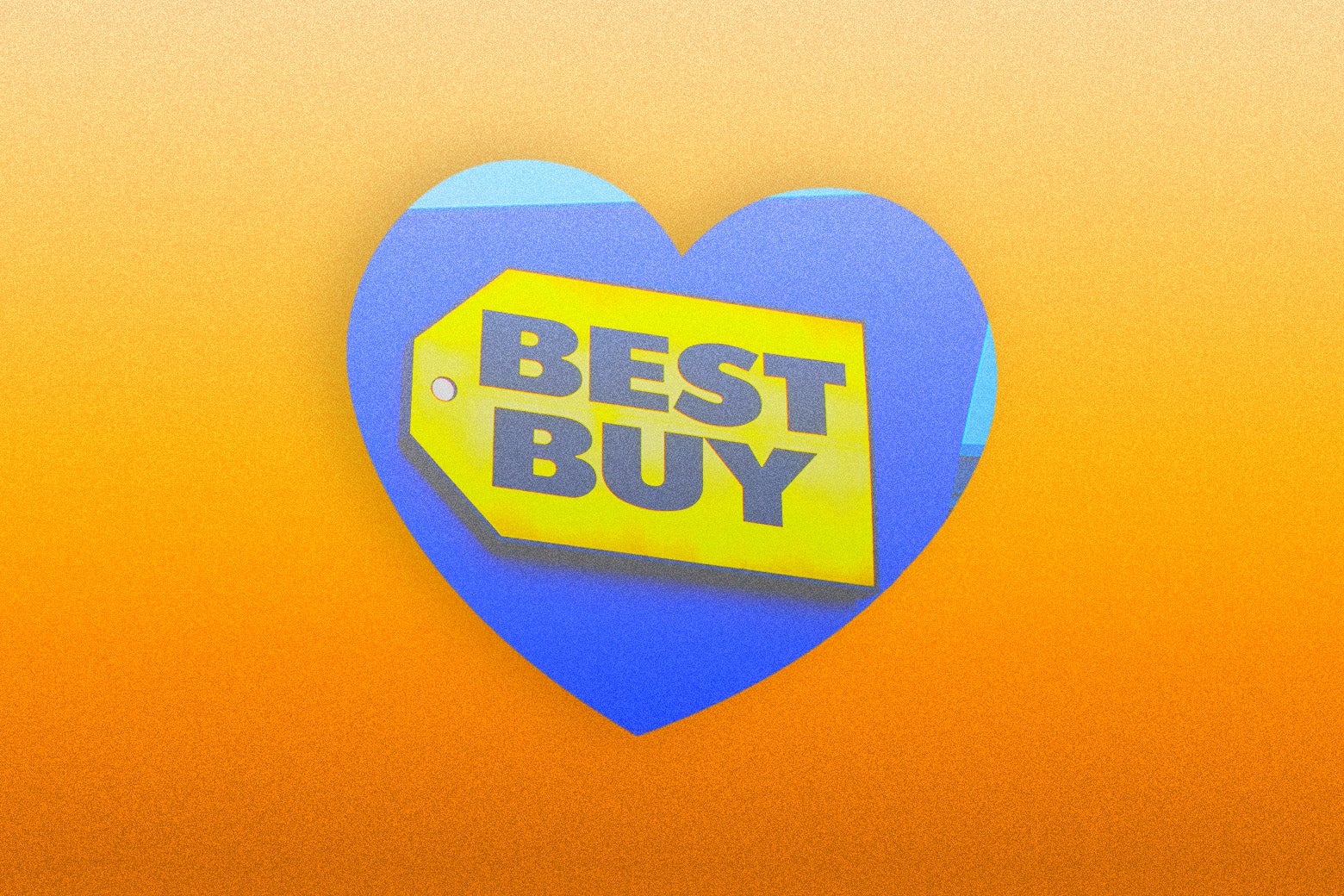Earlier this month, Best Buy laid off a number of Geek Squad employees amid declining sales. Before that, it announced that it will be closing 10 to 15 stores in the upcoming fiscal year.
This might look like a legacy big-box store getting suffocated by online retailers like Amazon—but it seems like a slump, rather than a spiral. Best Buy has spent the past 12 years turning itself into an essential, surprisingly enjoyable shopping experience that I hope will thrive long into the future.
It’s my go-to when the dishwasher needs to be replaced. When my son’s laptop died over the weekend, trapping a final project due Monday on its hard drive, I went to my local Best Buy and walked out with everything I needed to recover the file that afternoon so he could make his due date. When my wife asked for a turntable to play our old records, I went to Best Buy. None of these things were things I could only find at Best Buy, but they were all things I could always find at Best Buy.
Back in 2013, Slate ran a pan of the chain under the headline “The store is awful and deserves to die.” The complaints were valid: The prices were much higher than Amazon’s, and the upsells for things like gold-plated HDMI cables were inexcusable.
These days, though, I’ve found that Best Buy is generally competitive on price. They’re even doing well online, with 38 percent of their sales coming through digital channels. Forty-four percent of those sales are then picked up in-store. For those of us who like to do our own research (and avoid salespeople), Best Buy makes it easy to get things quickly, at a good price, without talking to anyone.
But, if you’re price-matching online retailers while also paying for expensive stores, how do you make any money? One answer, which Best Buy has unfortunately embraced, is that you make the stores kind of crappy. This can work if your store’s aesthetic is that the money they saved on decor is being passed on to you in the form of low prices (think Costco). But my local Best Buy is more “neglected and kind of gross” than “smartly frugal,” with half-stocked shelves above notably stained and worn-out gray carpeting; it’s hard to see that as part of a strategy to make customers think “VALUE!” (They say they’re working on it.)
They’ve also come up with a second, better answer to this retailer’s dilemma. Following in the footsteps of Costco, Sam’s Club, and Amazon, they’ve created an annual membership, with over 7 million paid members. The membership has two tiers, one $50 annually and the other $180 annually, with benefits ranging from free two-day shipping to 24/7 tech support.
My octogenarian mother is one of those subscribers, and my actual love of Best Buy comes from the fact that they provide tech support for her. The technology that we take for granted arrived fairly late in her life. She was in her 50s when she got her first cellphone. She was retired before she downloaded her first app. Even though she’s pretty good with all of this tech, it can still be very frustrating at times for her to navigate. Best Buy tech support is always available and generally pretty patient with her when she runs into issues.
This, I think, is Best Buy’s true niche. They offer consumer electronics at attractive prices, but allow you to pay extra for real, ongoing support if that’s valuable to you. While it would be easy to ding them for making people pay extra, the fact is that most retailers offer no support at all, and, when they do, it’s largely limited to handling manufacturing defects—not helping you use the products effectively. As technology continues to grow in importance in our personal lives, those support needs will also grow.
They’ve also come up with an interesting spin on this model, with the recently launched Best Buy Health. Perhaps succinctly described as “Geek Squad for your blood pressure monitor,” it’s a bet that Best Buy is good at getting devices into people’s homes and helping them to use them.
While I like to think that technology will remain forever intuitive to me, I know that time has a way of making fools of us all. When the day finally comes that I can’t get my A.I.-enabled wearable to control my self-driving car, I hope there will be a squad of geeks waiting for me.
